WW2 Arctic Convoy veterans awarded Russian Ushakov medal
- Published
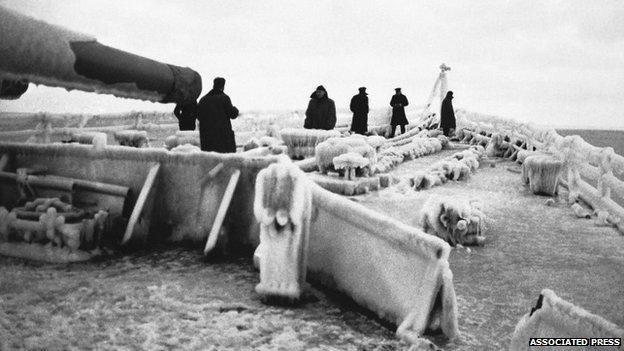
The men on the Arctic convoys endured freezing conditions to ferry war supplies to Russia
The Russian embassy has honoured 30 World War Two veterans in Southampton for their part in transporting crucial supplies to Russia.
Defence attaché Capt Oleg Kornienko presented Ushakov medals to the men of the Arctic Convoys.
Able seaman Charles Lewis, 91, from Calmore, Hampshire said he was "honoured and delighted".
The Foreign Office initially did not allow Russia to honour the veterans as it broke the rules on foreign medals.
The Russian embassy said the convoys allowed Russian soldiers to defeat the Germans on the Eastern Front.
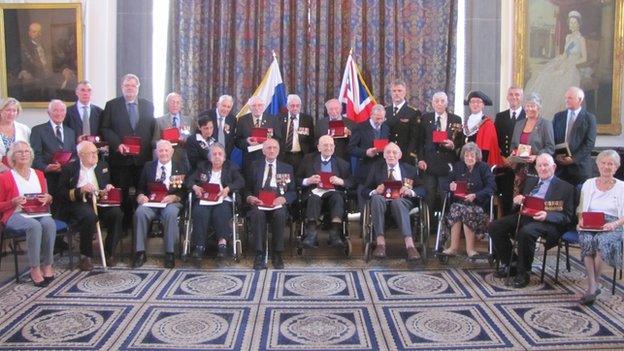
The veterans received the Russian accolade in the Mayor's Chambers at Southampton Civic Hall
Mr Lewis said: "I certainly don't see myself as a hero - far from it - and I think all my friends and colleagues, many of whom sadly are no longer with us, would regard us as simply doing our bit for the war effort.
"Although I have to say that Churchill's famous quote about the Arctic convoys' missions through the North Sea in winter as being 'the worst journey on earth' did strike a chord - then and now."

What were Arctic Convoys?
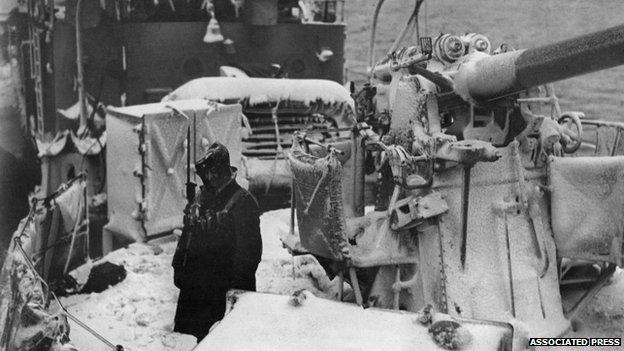
•They consisted of vessels which travelled from Britain to northern Russia to resupply the Soviet Union during World War II
•Under constant threat of attack by German U-boats and aircraft, the craft also had to deal with severe cold, storms, and ice floes
•By May 1945, the Arctic route had claimed 104 merchant and 16 military vessels. Thousands of Allied seamen lost their lives
Source: National Maritime Museum

Minister-Councillor Alexander Kramarenko from the Russian Embassy said: "It [the ceremony] is done for them because they have been expecting for a very long time to be recognized.
"It is done for us as it was important for us.
"The arctic convoy was a material expression of our wartime alliance and they provided weapons and ammunition that armed us to defeat the Germans on the Eastern front.
"We and Britain were in it together."
More than 3,000 men died during the maritime campaign that Winston Churchill was said to have called the "worst journey in the world".
The Russian Embassy wrote to survivors in May 2012 that it intended to award them with the Medal of Ushakov as a symbol of the country's gratitude.
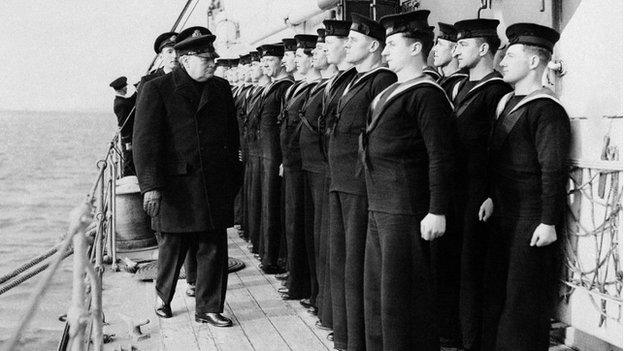
Winston Churchill, here inspecting the Arctic Convoy's flagship HMS Scylla, reportedly called the route the "worst journey in the world"
But the move was blocked by the Foreign Office as its rules stated British soldiers could not receive a foreign medal if the act happened more than five years ago.
The British Government created the Arctic Star in 2012 following a long campaign for the convoy veterans to be recognised.
But campaigners believed veterans should still be able to receive the Russian accolade.
The Foreign Office allowed an "exception to the rules" last year and President Vladimir Putin presented the first medals during his visit to London on 16 June 2013.
The Ushakov medal is awarded to sailors who have displayed courage in the course of defending Russia or its interests.
- Published7 September 2014
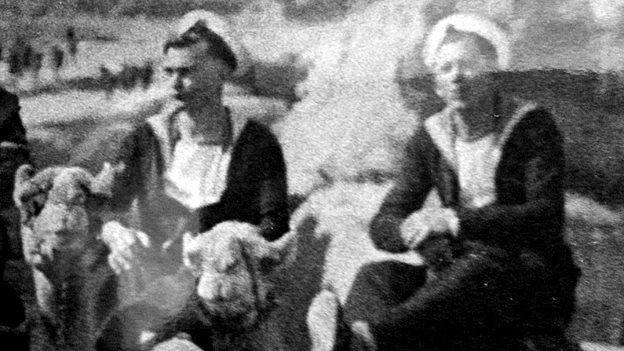
- Published3 September 2014
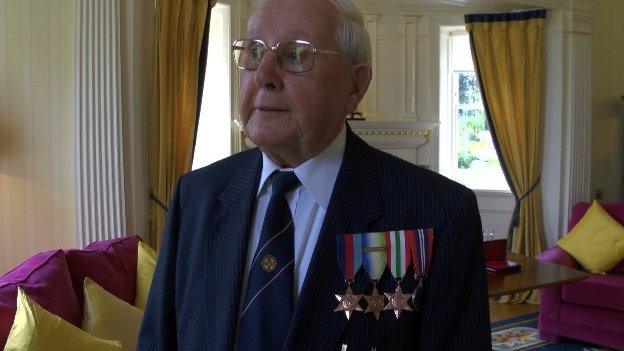
- Published12 January 2011